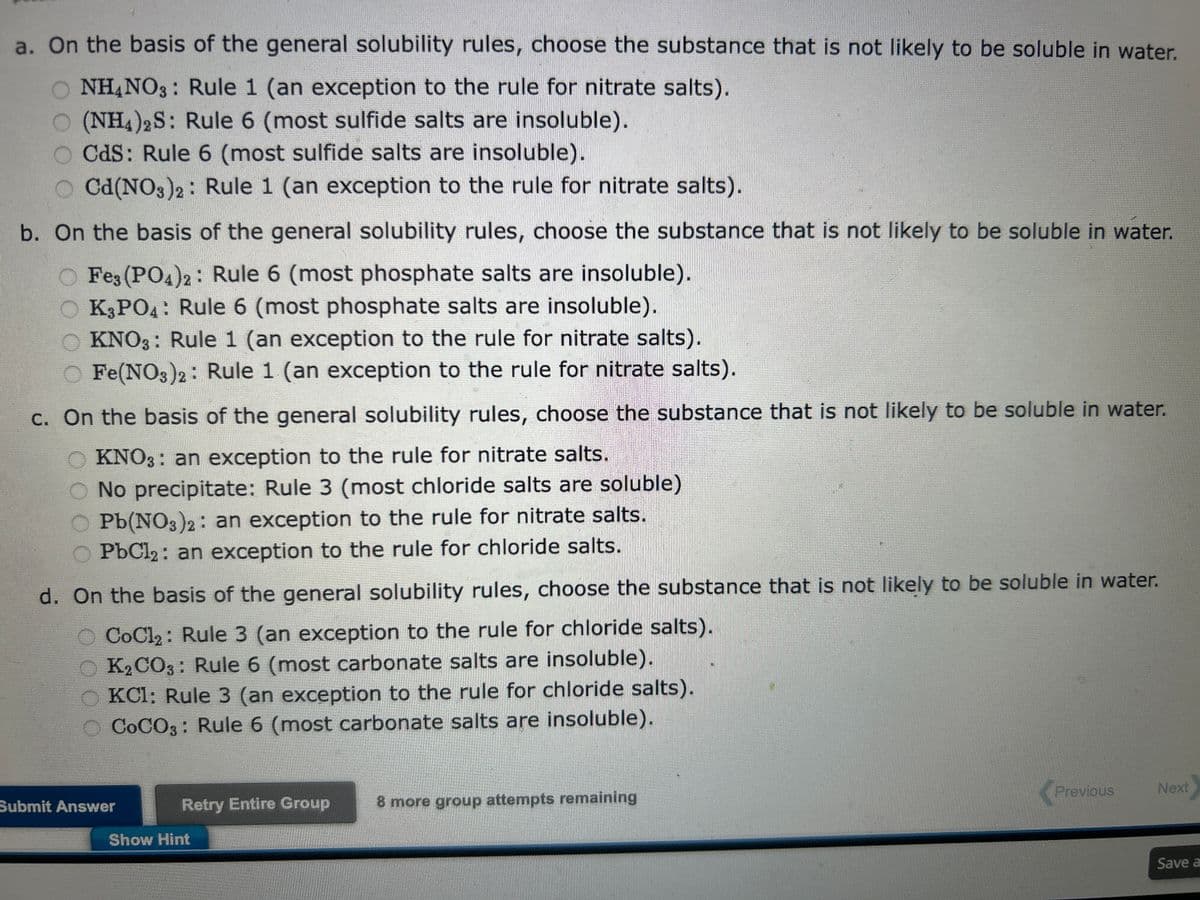a. On the basis of the general solubility rules, choose the substance that is not likely to be soluble in water... O NH4NO3: Rule 1 (an exception to the rule for nitrate salts). O (NH4)2S: Rule 6 (most sulfide salts are insoluble). OCds: Rule 6 (most sulfide salts are insoluble). OCd(NO3)2: Rule 1 (an exception to the rule for nitrate salts). b. On the basis of the general solubility rules, choose the substance that is not likely to be soluble in water. O Fe3(PO4)2: Rule 6 (most phosphate salts are insoluble). O K3PO4: Rule 6 (most phosphate salts are insoluble). O KNO3: Rule 1 (an exception to the rule for nitrate salts). O Fe(NO3)2: Rule 1 (an exception to the rule for nitrate salts). c. On the basis of the general solubility rules, choose the substance that is not likely to be soluble in water. OKNO3: an exception to the rule for nitrate salts. O No precipitate: Rule 3 (most chloride salts are soluble) O Pb(NO3)2: an exception to the rule for nitrate salts. O PbCl₂: an exception to the rule for chloride salts. d. On the basis of the general solubility rules, choose the substance that is not likely to be soluble in water. CoCl₂: Rule 3 (an exception to the rule for chloride salts). K₂CO3: Rule 6 (most carbonate salts are insoluble). OKCI: Rule 3 (an exception to the rule for chloride salts). O COCO3: Rule 6 (most carbonate salts are insoluble).
Ionic Equilibrium
Chemical equilibrium and ionic equilibrium are two major concepts in chemistry. Ionic equilibrium deals with the equilibrium involved in an ionization process while chemical equilibrium deals with the equilibrium during a chemical change. Ionic equilibrium is established between the ions and unionized species in a system. Understanding the concept of ionic equilibrium is very important to answer the questions related to certain chemical reactions in chemistry.
Arrhenius Acid
Arrhenius acid act as a good electrolyte as it dissociates to its respective ions in the aqueous solutions. Keeping it similar to the general acid properties, Arrhenius acid also neutralizes bases and turns litmus paper into red.
Bronsted Lowry Base In Inorganic Chemistry
Bronsted-Lowry base in inorganic chemistry is any chemical substance that can accept a proton from the other chemical substance it is reacting with.

Trending now
This is a popular solution!
Step by step
Solved in 5 steps









